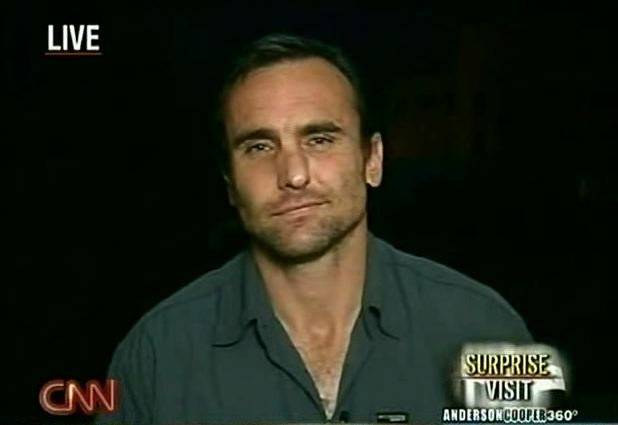AC: "We watched...as the insurgents go in one door...and emerge as the so-called Iraqi police."

Length: 3:10
LARGE (37.2 MB) ----- SMALL (3.7 MB)
ANDERSON COOPER: And as for progress throughout Iraq, the picture is certainly mixed.
CNN's Michael Ware joins me now from Baghdad where the president did not visit.
Michael, thanks for being with us.
This was just the third visit by the president. Clearly, timed for the run-up to General Petraeus's trip to Washington. What was the reaction in Iraq to the surprise trip?
MICHAEL WARE, CNN REPORTER: Well, it's been muted at this stage, Anderson. Obviously, there's been very little that we've heard from the Iraqi senior political leadership. Indeed, in a few hours, the Iraqi National Security Adviser Dr. Mowaffak Rubaie, is due to unveil Iraq's new strategy of its own, so we're eagerly awaiting that.
Although we have heard from Prime Minister Nouri al-Maliki that he rejects U.S. criticisms and that he's hardening his government. He's buttressing it, saying that he can deliver as his government sees fit. So they remain defiant -- Anderson.
COOPER: The president flew to Al Anbar Province. We've talked about it a lot. He touted the security progress that has been made there. Undeniable, things are getting better. What is working in Al Anbar and how and really, frankly, can it translate into the rest of Iraq?
WARE: Well, certainly, one of the president's war counsel -- I believe it was Secretary Gates himself -- said that really the success of Al Anbar Province predates the surge. It's really an Iraqi initiative. And what that is is that the Sunni Baathist insurgency turned on al Qaeda and it offered America the same terms of negotiation that it first offered four years ago in 2003 in that it was willing to work with America, but not with the Iraqi government.
And America, after four years of bloodshed, was finally ready to accept those terms. So it's the Sunni insurgency that has turned Al Anbar around and made it safe. And having just returned from that province ourselves, having been with those insurgents, we watched with our own eyes as the insurgents go in one door of a training camp and emerge as the so-called Iraqi police that are keeping those streets safe that President Bush referred to -- Anderson.
COOPER: A lot of people probably did not cover this today, but a really important event did happen in Iraq elsewhere where President Bush wasn't. British forces handed over control of Basra, which is Iraq's second largest city. It's down in the south. They handed over control to Iraqi forces. It's a big test.
WARE: Absolutely. I mean, in terms of a test, we already know the outcome. The Brits have by and large been irrelevant to the security situation in southern Iraq for almost a couple of years now. Anderson, they just haven't had control. They never had enough forces in the beginning. They never had the mandate to confront the real problem down there, which is the Shia militia's stranglehold on power and oil revenues and Iran's backing of those Shia militias, according to Western intelligence. So all the Brits have been trying to do down there is stay alive while they've been getting hammered by rockets and missiles. So the significance militarily is minimal at best -- Anderson.
COOPER: Michael Ware, reporting from Iraq.
Michael, thanks.
